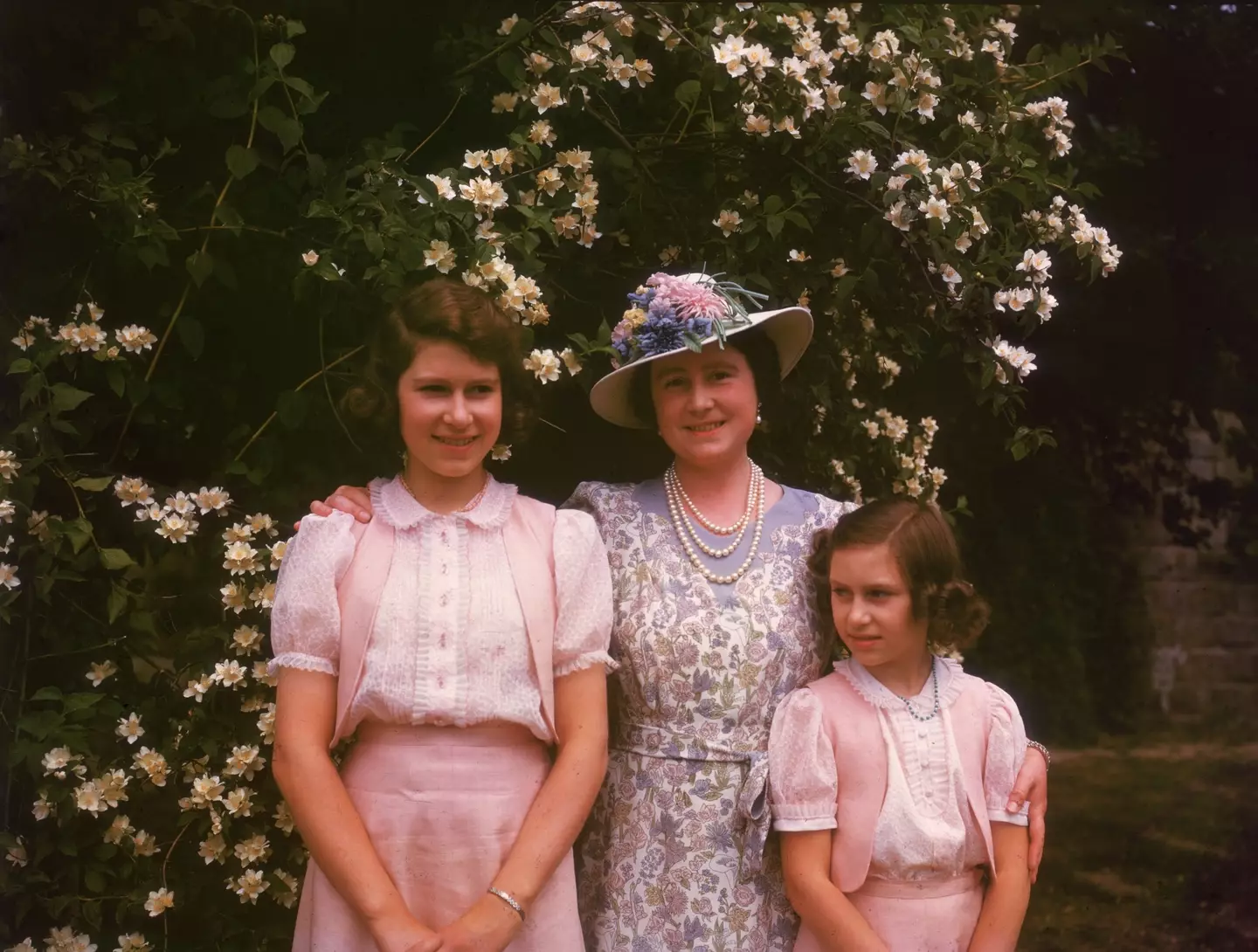
Topics: Health, Royal Family, Books

Topics: Health, Royal Family, Books
A royal biographer has alleged Princess Margret, Queen Elizabeth II’s sister, had an ‘invisible illness’ due to a condition that results from alcohol exposure.
Princess Margret, who died after a fourth stroke in February 2002, age 73, is the subject of a new book by Pulitzer Prize-winning writer Meryle Secrest, 95.
Princess Margaret and the Curse: An Inquiry into a Royal Life is poised to deliver a ‘groundbreaking new perspective’ on the late royal.
People reported that the forthcoming book claims Margret had fetal alcohol syndrome (FAS) due to Queen Elizabeth, the Queen Mother’s drinking habits in late 1929/early 1930.
Advert
As per the National Organisation for FASD, the condition was not identified until 1973, meaning the Queen Mother would not have been advised against drinking while pregnant.
The book speculated that the Princess exhibited symptoms of the condition throughout her life, including mood swings, stunted growth and painful migraines.
These allegations, including the FSD diagnosis, have never been proven.
Tyla has contacted Buckingham Palace for a comment.

One of the late Princess’s friends has slammed Secrest’s ‘ridiculous’ remarks, telling the Daily Mail: “It is truly bizarre to suggest that everything that happened to the Princess can be put down to how much the Queen Mother drank while pregnant. And not just bizarre but ridiculous.
“Her life was not one long tragedy: she was an intelligent woman with a wide circle of interests and friends and was a mother and grandmother.”
Similarly, biographer, journalist, and royal expert Christopher Wilson took to X and wrote: “Crazy theory containing not a shred of proof turned into a book.”
The Telegraph has added that there is no ‘firm evidence’ that the late Princess ever ‘suffered from an alcohol-related neurodevelopmental disorder’.
“The new biography has been written by comparing Margaret’s life, as attested in pre-existing written sources, with those who have suffered from the condition," it reports.
People reported that Secrest cited the work of Dr. Kenneth Jones, who is credited with identifying fetal alcohol syndrome, in her upcoming text on Princess Margaret.
The publication wrote that the biography compares Margaret's life, through existing written sources, to those who have navigated the condition.
Mayo Clinic defines FAS as a condition that develops in children resulting from alcohol exposure during the mother's pregnancy.
The more you drink, the greater the chance your unborn child has of developing issues.
Symptoms vary, with some children having greater problems than others, including physical development like slow physical growth before and after birth, poor coordination or balance and being jittery or hyperactive.
Drinking during pregnancy may also cause learning and thinking issues, such as poor judgment skills, a short attention span, a poor concept of time and trouble with organising and planning or working toward a goal.

Social and behavioural issues that may arise include challenges in school with attendance, being easily influenced by others, and quickly changing moods, the agency stated.
The National Organisation for FASD has released a statement on Princess Margaret and the Curse: An Inquiry into a Royal Life, which is due for release on international FASD Awareness Day.
“While we as an organisation do not speculate on who may or may not have FASD, we are pleased to note that there is increased public awareness these days of the risks of alcohol and pregnancy and that there are changes underway for better diagnosis and support for people with FASD,” said Sandra Butcher, National FASD’s chief executive.
“The UK Chief Medical Officers guidelines only changed in 2016 to say that the safest approach was not to drink alcohol at all in pregnancy. In 1930 there was no advice on the risks associated with prenatal alcohol exposure.
“It is now known that there is no proven safe amount of alcohol in pregnancy. We note that Meghan, now the Duchess of Sussex, made a point of going alcohol-free in her pregnancy and Prince Harry reportedly joined her in that and that was a welcome signal from people with considerable influence.”
Butcher added that agency is ‘concerned’ that the reporting in the biography ‘must sensitively reflect real lived experience and the latest science’.
“FASD should not be described as ‘a curse’ and we should avoid saying those living with FASD ‘suffer’.
“We believe people with FASD can, and do, live fulfilling, productive and creative lives with the appropriate support. This is the focus of the work that The National Organisation for FASD does.”
Butcher has called on the government to institute a FASD Prevention and Response fund equivalent to 0.2 percent of the alcohol duty.
She alleged this would be 'so national policies can be implemented, awareness campaigns can inform the public and those who experience alcohol harm before their first breath can get the support they deserve'.